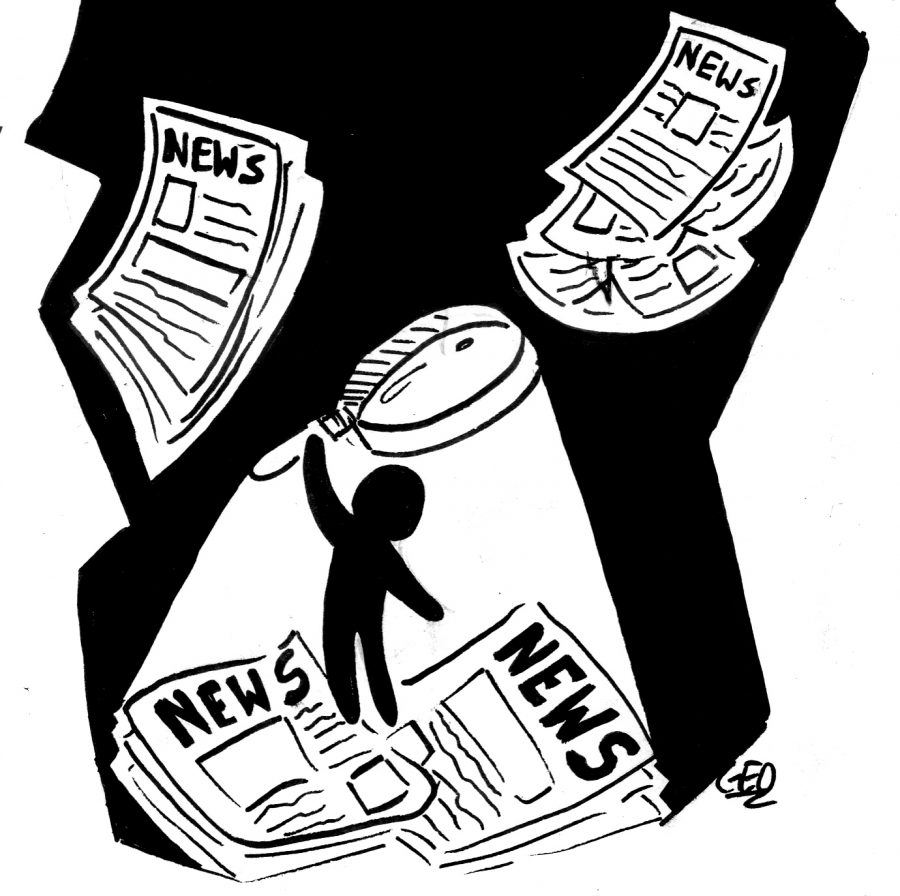As a journalism student, the search for truth becomes a focal point in many of my course lessons. This “truth” is often coupled with notions of objectivity, and a relentless aim for neutrality. This point of view is critical, though I find some journalists are objective when dealing with issues that institutionally benefit one side of the narrative and detriment the other. In these circumstances, there is no place for objectivity.
Take last month’s white supremacist rally in Charlottesville. Senior religion reporter Jack Jenkins at ThinkProgress tweeted thoughts on the following days’ coverage saying, “Reminder to journalists: White nationalism is bad. Trying to pull ‘both sides’ on this subject is an editorial stance — and a bad one.” Jenkins highlights the importance of bias when in search for the truth, which echoes Thor Benson’s argument in Paste Magazine that it is the job of the press to illuminate the dangers to Americans even if sounding biased. The truth is that white nationalism holds no place in society. When journalists do not push back it creates a false equivalency.
The line between journalism and activism becomes difficult to differentiate when information comes from many different directions.
To be clear, I am an activist. I rally for the Black Lives Matter movement, stand with the Anti-fascists and push for the equal treatment of minority students.
I am also a journalist.
“After being a daily journalist, I had to sit and think about my own views because they had been suppressed which is why I think journalists should not be 100 percent (objective) … you owe it to yourself to know what you believe,” journalism associate professor George Sylvie said.
“Journalism 101” teaches us to think objectively and restrain emotions when reporting, which according to top journalism professors, allows us to listen to what a source is telling us while factually reporting a story. Agenda setting could stifle journalists from finding other angles. However, the promise of other angles might not outweigh the moral cause on hand, such as when journalist Jake Tapper tweeted out, “At least two journalists in Charlottesville were assaulted by people protesting the Klan/Nazi/alt-right rally … ,” legitimizing the false equivalency that “both sides” represent similar values.
This middle ground in our current political climate creates a vacuum which allows others to politicize journalism either way. While it is true that we need to understand what motivates the “other side” — journalism demands honesty. “I personally don’t necessarily believe that journalism has done itself a favor by being objective,’ Sylvie said. “On the other hand, when young people want to learn, and when the public needs to be rationally informed, objectivity has its place.”
Journalism can be a tool to push back against corrupt institutions. At its root, journalism is a basic form of activism. When advocating for a cause, objectivity gets tossed out of the window which should not carry a negative connotation. But objectivity does play a role when dealing with less divisive situations. We can always choose when and where to be objective, but the key, at least for me, is knowing when to get involved in activism.
Devora is a journalism senior from Mesquite.





















